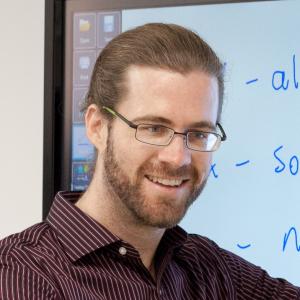29th August 2017
Everyone has an opinion on education.
None more so than teachers themselves. “It’s one of those things that goes deep with people. Like religion, like money”, says Ken Robinson.
Yet becoming a teacher is unique in that you must go through an apprenticeship as a student first. Another way of putting it is to say that doctors don’t need to be patients before they become doctors, firefighters don’t need to be set on fire before they become firefighters, pilots don’t need to be passengers before they become pilots. But teachers must always be students first.
One key observation we make as CertTESOL trainers is the amount, the breadth and variety of learning reflections that novice teachers make. Things that they had never expected to learn, not just about language, but about teaching as a skill, and about themselves as people.
Becoming a teacher is not yet one of the most valued rites of passage in our society, but, based on the things you learn by becoming a teacher, perhaps it should be.
1) How to use your voice, your teacher voice
Teaching is like acting. This is a common metaphor that many people come to associate with teaching. Talk to any teacher as they walk out of class and the first thing you might notice is that they sound different.
At the heart of any classroom is language – maths, science, geography, cooking, sport. Everything you learn is communicated through language, and the most efficient way to do this is oral communication. After all, it is much faster to explain something than write it down (though it’s not always the most effective!).
Wouldn’t it be interesting to follow new teachers through their first years of service and record the way in which their voice, their language use and their spoken communication changed?
2) How to listen
The transmission model of education is one that is frequently challenged in 21st century schooling. No longer do we have an urgent need to get information across, to memorise information and to regurgitate what our teacher told us.
One of the pillars of effective classrooms is feedback, and this requires teachers to respond to students’ ideas. Indeed, some of the more alternative, or fringe pedagogies view teaching as a subversive activity: one in which it is not the teacher’s job to talk, but to listen. How can you respond to student needs if you don’t listen and identify them first? Indeed, observant teachers, the ones who prioritise evidence and react with discretion are often thought of as the most effective.
3) Organisation skills: how to get up early
In any one week, teachers in Hong Kong might teach in excess of 10 different classes, each with 30 to 40 students. Each with their own curriculum, levels, needs and interests. Is it any wonder that effective teachers are well-organised?
I’ve often argued that watching the most effective lessons is like watching a work of art unfold. Organisation is at the heart of principled teaching, and at the beginning of any journey into teaching, teachers need to learn how to select and organise ideas into coherent plans. Then, teachers must learn to organise activities into meaningful progressions, lessons into productive units and resources so that they are accessible and reusable.
4) What learning means
The ambiguity of teaching lies in the fact that there is no one way to teach or to learn. Different cultures also define and prioritise meaningful learning in different ways.
First we must understand that education is never a neutral experience – the topics, the content, the process of education is always influenced by local culture, politics and social dynamics – which mean that teachers also rely on their own beliefs to direct what they consider to be the most effective way to learn.
So, we can say that becoming a teacher, at least becoming a good teacher means you need to have an understanding, or belief, of what learning means to you and your students.
5) How to negotiate
As we said earlier, education is never a neutral activity, and in many contexts, teachers find themselves working within challenging, even limiting constraints. You might not always agree with what you have to teach, or how your school expects you to teach it, or the way your students complete their work. But sometimes you have no choice. Sometimes, the alternative is impossible, impractical, too expensive or unrealistic. Sometimes you won’t have the resources or the skillset to do things in the way you’d like to.
This can be clearly seen in the day-to-day workings of any class. While we’d all love to believe that real teaching was about those stand-on-the-desk-and-spout-inspirational-quote moments, the reality is probably more along the lines of why-are-you-eating-your-friend’s-sock-and-could-you-please-complete-your-worksheet-without-trying-to-use-your-own-saliva-as-a-form-of-ink requests. At the end of the day, teaching is the art of coercing young adults into believing that what they are learning is worthwhile. It’s about more than teaching them what to learn: it’s about encouraging them to explore how they learn when they think they don’t need, want or have to. And that is, at its heart, the sign of a truly skilled negotiator.



